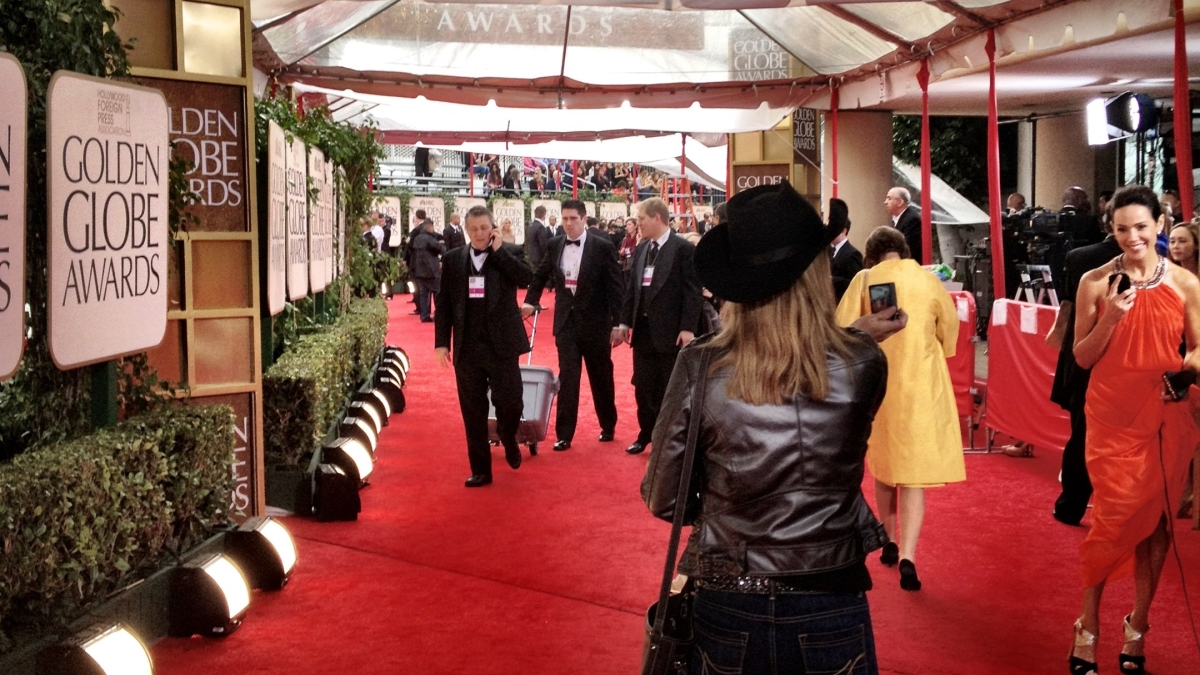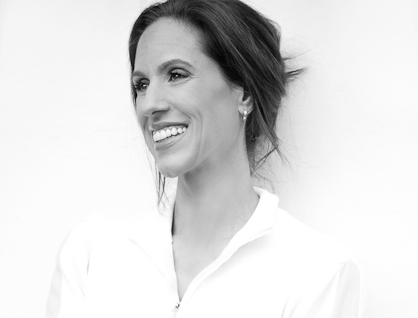The 2018 Golden Globes went dark Sunday night, dressing to match the pall of sexual misconduct that has hung over Hollywood and beyond this past year.
More than 300 actresses, actors, directors, artists and attendees at the 75th annual award show dressed in black as part of the #TimesUp Movement, an organization of women in entertainment combating sexual harassment and inequality.
Was the glitzy but politically charged event the start of a tectonic shift in Hollywood? Was the awards show the appropriate medium to try to affect social change? And can Tinseltown clean house in this post-Harvey Weinstein era? To find out the answers to these questions, ASU Now spoke with Cat Hartmann, an instructor in Film and Media StudiesA unit within the College of Liberal Arts and Sciences. at Arizona State University and a professional actress and performer.
Cat Hartmann
Question: The Golden Globes are the first major red-carpet awards show of the year and the first to fall after the Weinstein scandal. How important is it for Hollywood to address this issue right away?
Answer: All of Hollywood, the media and the public will be watching this award show to see how Hollywood is going to address the scandal that has rocked its industry this past year. The Golden Globes is the official start of the awards season, and it sets the tone for the rest of the shows — on the red carpet, on the stage and in the media. How the Golden Globes addresses sexual misconduct will establish a foundation for how it will be treated for the rest of the season. Whatever choices they make, a roast, a punchline or an earnest plea for change, it will be picked up and echoed going forward.
Q: Most everyone in attendance wore black to this year’s Globes in a show of solidarity in light of the #MeToo and #TimesUp movements. Do symbolic gestures like this have power?
A: I feel symbolic gestures can have power; they generate conversation that can spur action. They are the handclap that can trigger an avalanche. While asking women to dress in black on the red carpet may seem trivial, it hits women in the industry in a meaningful way. Many partnerships and brand endorsements are made because of red-carpet appearances. … These partnerships with fashion houses and brands can result in lucrative contracts, as well as raise global cachet and visibility. These partnerships can help raise public recognition, which results in a greater option of roles, as well as a stronger position at the bargaining table concerning salary negotiations. It is an opportunity for actresses to level the unequal financial playing field off the screen. If she can raise her off-screen demand, she can raise her on-screen worth. To ask women to forgo color — the easiest tool to help set themselves apart on the carpet and secure these partnerships — is not trivial.
Q: Seth Meyers’ opening monologue certainly addressed the elephant in the room. But did he hit the intended mark?
A: I think he went pretty soft. He went for two targets (Harvey Weinstein and Kevin Spacey) that no one is defending. He then proceeded to make it all about how men are feeling.
I am finding more interesting the very strong push by Hollywood women to carefully frame and elevate the ideas that this is not just a Hollywood issue, it affects people of color harder and they are not the first women fighting for equality — that they are standing on generations of women before them.
Q: Were there any speeches, moments or gestures this year that stood out to you?
A: Oprah Winfrey's speech was very moving and will be heavily discussed. It was personally beautiful and universally true. Her impassioned speech is a powerful reminder of why representation, justice and equality for everyone is so utterly vital.
Debra Messing’s callout of E! on the red carpet during E!’s live interview of her was bold. It pointed to hypocrisy on the part of the network and reinforced the idea that just talking about it isn’t enough.
Q: How do you think Hollywood will address the issue of sexual misconduct and the appropriation of power moving forward?
A: I think that wholesale change often happens slowly, particularly when (the problem) is widespread and has been the modus operandi for so long. I think Hollywood is not only poised for a change, it is thirsting for one. However, I am concerned that it can also face a possible backlash by people who are threatened by it and still hold power. The #MeToo movement and the Time's Up campaign run the risk of becoming empty catchphrases if people don’t continue to push for action beyond the hashtags and memes.
The choice by many actresses to bring social activists as their plus-one and give them camera and interview time was an excellent place to start. It sets a strong example of how to convert privilege and access into a platform of opportunity for these issues to be presented by people who are working to improve them.
Top photo by jdeeringdavis (Flickr: Golden Globes red carpet) [CC BY 2.0 (http://creativecommons.org/licenses/by/2.0)], via Wikimedia Commons
More Arts, humanities and education

ASU alumna makes her way back to the ASU Gammage stage for '¡azúcar!'
As the Los Angeles-based CONTRA-TIEMPO dance group prepares for its upcoming production “¡azúcar!” at ASU Gammage, for one member of the dance group it is also a nostalgic return to her home.Born in…

ASU FIDM professor wins international award for fantastical, sustainable creation
The horror of an ailing Earth inspired an Arizona State University fashion professor to create a fantastical garment out of sustainable, re-used and found materials that won a prestigious…

ASU workshop trains educators, professionals from marginalized communities in disaster science
As devastating as hurricanes can be to anyone caught in their paths, they strike marginalized communities even harder.To address this issue, a fund named for a former Arizona State University…

